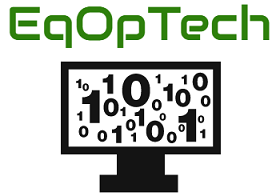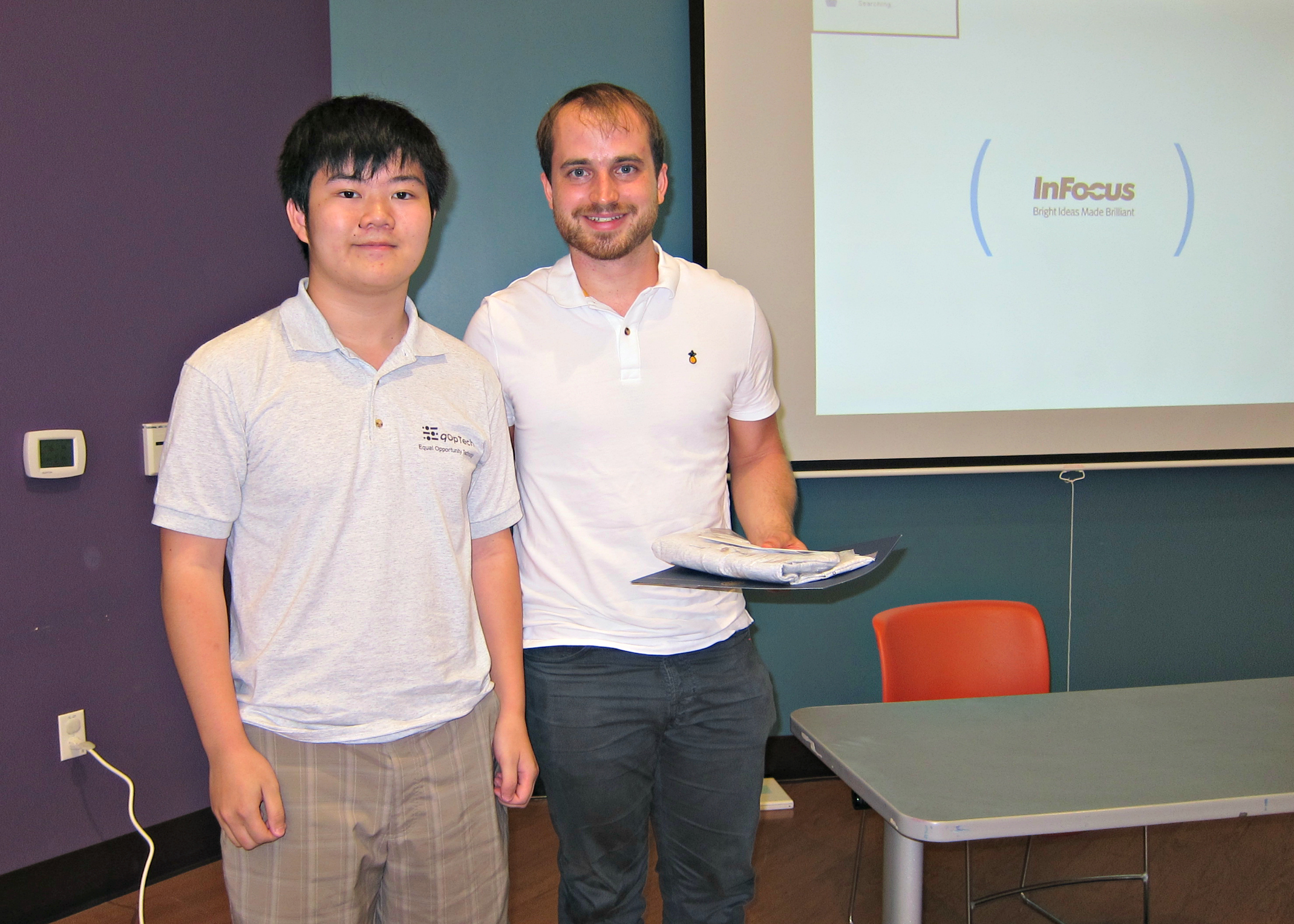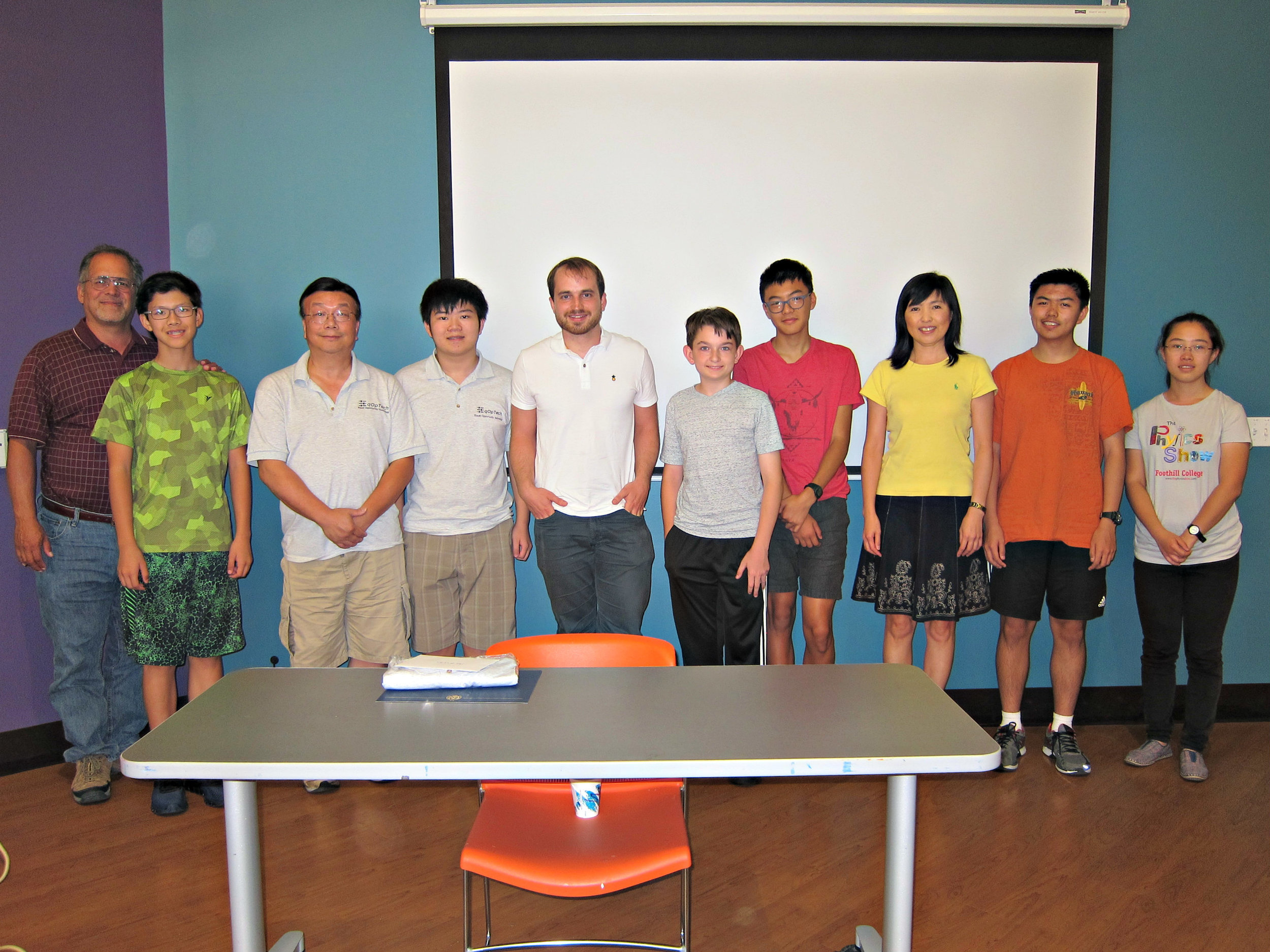By Kevin Gao
On September 16, 2017, EqOpTech hosts a seventh tech talk in a series of Speaker/Workshop for students interested in the tech fields. This tech talk features Andreas Santucci, a data scientist and lecturer at Stanford University.
In this segment, Andreas talks about how he got to where he is today: the challenges he had to overcome, the path he took to get here, and how he became a data scientist, despite originally wanting to be a lawyer. The world of data science enables him to combine his personal interest using predictive analysis to make sense of the world around him while at the same time provides for an opportunity to problem-solve and innovate.
*Choosing your own path to success*
Andreas Santucci, Data Scientist, Cardinal Analytx Solutions. Stanford Lecturer
Andreas reveals that going straight to a four-year college after high school is not the only path you can take; he describes the path he took, which helped him greatly in discovering his interests and getting him prepared for college.
After finishing high school at Los Altos High, Andreas was accepted into many schools, including UC Santa Cruz, but instead chose to go to Foothill College, the local community college, as the courses offered at Foothill were more interesting and offered more freedom.
Many people do not view community college as a typical path, but it does have its merits. For example, some benefits to going to Foothill College include:
-Offers transfer agreement guarantees to all UC’s except UCLA and UC Berkeley, meaning you are guaranteed a spot in the college as long as you take basic courses and maintain a decent GPA.
-Professors are very good, and Andreas comments on how some of his best professors in Stanford, Berkeley, and Foothill have been from Foothill College.
-All the opportunities are there for you to grab; if you are self-motivated, you can get a lot out of the program and widely expand your horizons.
-Being able to enter a 4 year university afterwards knowing exactly what you want to major in and what you want to study, instead of having to start from scratch.
Out of Foothill, Andreas went on to UC Berkeley, where he tried out for diving for the first time ever, and after training 30-40 hours per week, he soon found himself a spot on the diving team’s travel squad. At the same time, he maintained a high GPA and received the highest honors in his economics courses, and from there he went on to Stanford University.
*Deciding on an Interest*
What Andreas’ path demonstrates is that our interests or what we want to major can evolve over time. While he was in high school, he always thought he was going to be a lawyer when he grew up. In Foothill College, he explored other disciplines and developed an interest in economics from among the many courses he took there. In the next two years, he completed all the economics that the college had to offer. At UC Berkeley, he continued taking economics courses, while still believing that he would be going to law school soon enough. In his final year, he took a course in econometrics, an economics class which uses mathematics, and mostly statistics, and he found it to be the “most useful facet of economics”. Before long, he began to delve into STEM, learning to program first in stata, a pseudo programming language, and eventually onto more complicated ones. At an internship in an economics consulting firm, he learned the R programming language, and went on to become a data scientist.
In fact, this is not uncommon at all; statistics show that 80 percent of all students in the United States change their majors at least once, and on average a student will change their major three times. This is valuable because it emphasizes how important it is to have an open mind going into things, and how we should be motivated to try and explore our interests in the early years of college. If you think you’ve got your future job laid out for you already, think twice about it; there are almost 2000 majors out there, and you probably haven’t explored even a quarter of them yet.
*Following your interests*
An obvious point that is not so obvious to many is to choose something you really want to do. And if you have multiple interests, why not do something that combines elements from each interest? Andreas shows everybody exactly this, as he combines two things he really enjoys, data science and sports, into the work that he does.
At UC Berkeley, Andreas was very active on the diving team, where he frequently went to competitions and slowly made his way up the ladder, starting from scratch and ending up on the travel squad team. At the same time, he was also starting to take courses relating to statistics. Combining these two, he conducted a study on what effects of being a student athlete had on a student’s grades. Later on, he would further investigate similar topics, such as: Is there a causal effect of major sports teams visiting night life teams? What happens the next day; do they get a “hangover” effect? Through this, he was able to use a subject he was interested in, numbers and statistics, to calculate something that he really cared about.
*Don’t be afraid to explore a different path*
Andreas shared that he pursued a different track from his peers at graduate school in Stanford; he took summer courses to jumpstart the program. He focused on a solid programming curriculum and built connections with students that have complimentary skillset such as in applied math and took on joint projects requiring programming and math skills. In his first year, he got an internship at Lawrence Livermore using machine learning to develop early prediction or one-step prognosis of sepsis infection contracted while in hospital. He teamed up with Kaiser Permanente by accessing electronic medical records to analyze patterns while patients are in ICU before getting into septic shock. Andreas built tooling using distributed computing system with Spark to develop the analytics tools. In his second year, he took core PhD courses and qualifying exams for PhD. His reputation of good note taking led him to a teaching opportunity at Stanford. He was voted Graduate Teaching Fellow at Stanford.
Motivated by his personal interest to phase out the time-consuming manual grading by TA, Andreas engineered an AutoGrader system, to facilitate programmatic grading of students' computer programs using machine learning.
At Cardinal Analytx Solutions, Andreas’ role as a data scientist is to use advanced machine learning models to predict future high cost member event and work with clinician teams to recommend medical intervention to improving the quality of care while containing costs.
*From Walked-on to Rising-above*
Andreas "walked-on" to the school's Swim and Dive team at UC Berkeley, and he earned a spot after the official roster had been set. This is Andreas’ inspiring story: his work ethics, passion, hard work and motivation propel him to rise up and achieve great things. EqOpTech would like to sincerely thank our speaker for taking the time to share his experiences and invaluable words of advice.
Our Equal Opportunity Technology program is made possible thanks to Los Altos Community Foundation community grant award.
Visit here for more information.




